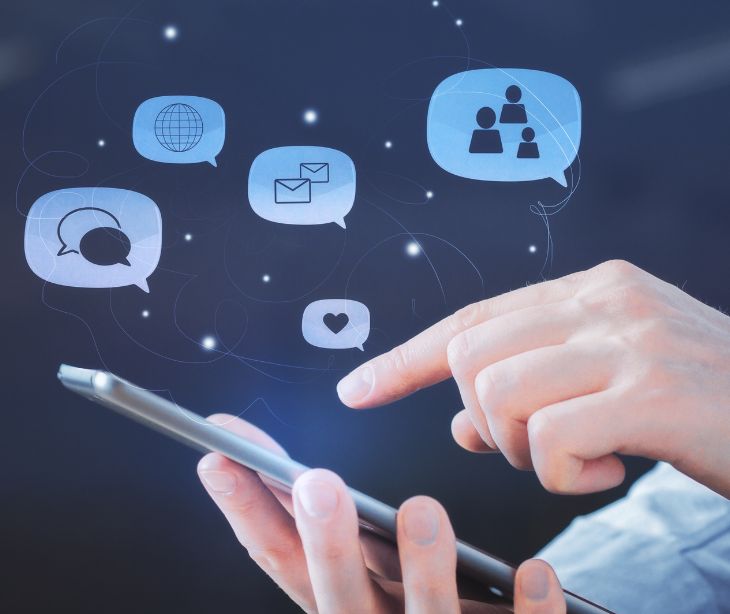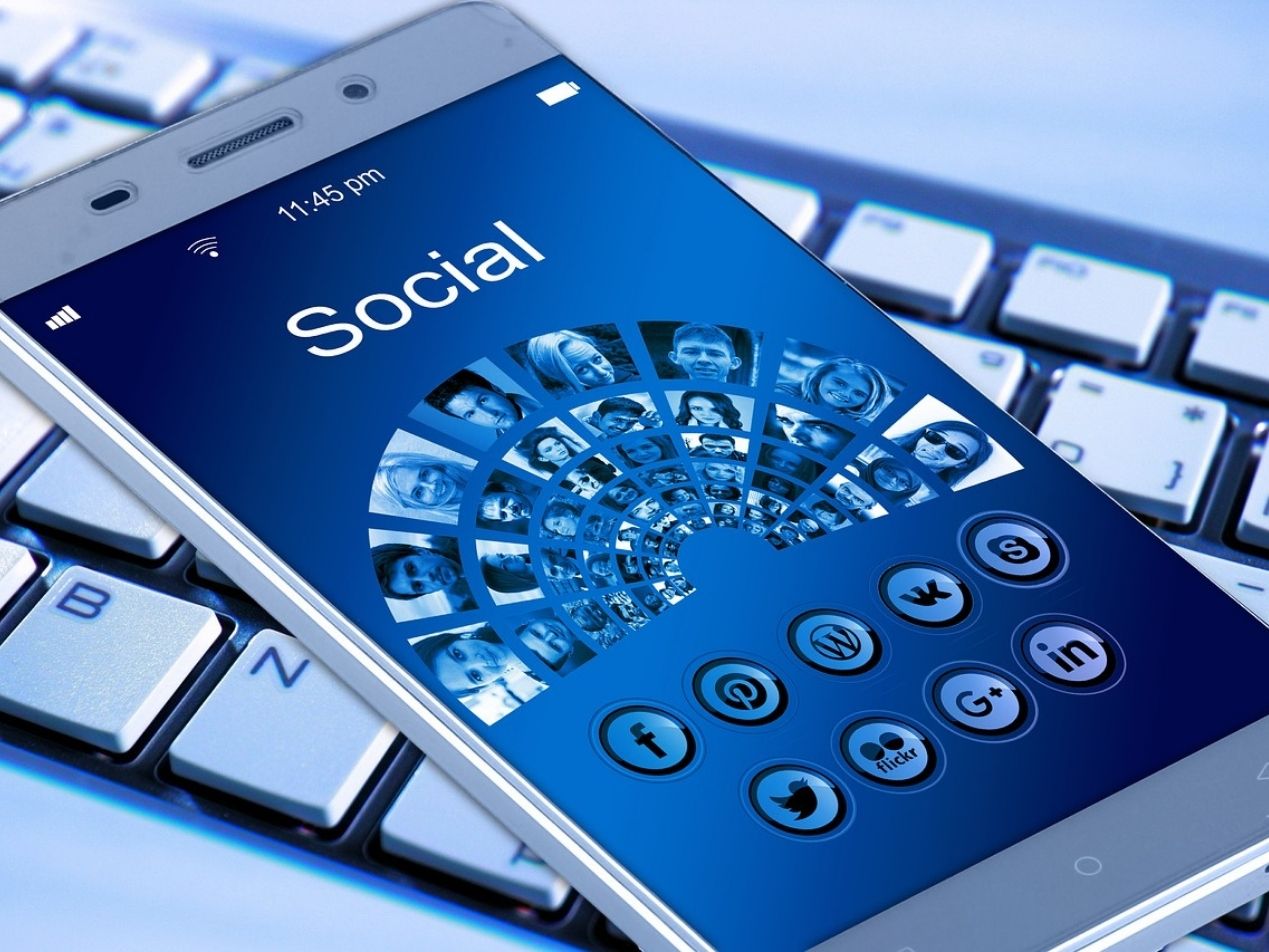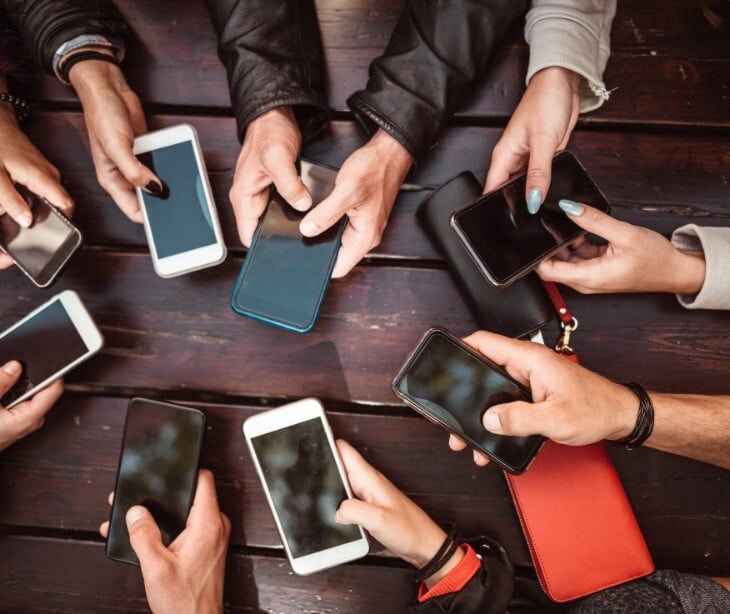2 min read
The importance of social media literacy among healthcare staff
Kirsten Peremore
March 1, 2024

Social media literacy refers to the ability of individuals, including healthcare staff, to effectively navigate, critically evaluate, and responsibly engage with social media platforms. This skill set is increasingly necessary in the healthcare sector, especially considering the Pew Research Center's findings that internet usage among American adults surged from 52% in 2000 to 89% in early 2018, signaling a dependence on digital technologies. Furthermore, the World Health Organization (WHO) reports that 58% of Member States surveyed successfully implemented a digital strategy. Among healthcare staff, the effective harnessing of the potential of social media while mitigating its associated challenges ultimately contributes to the delivery of safe, high-quality, and patient-centered care.
Why is social media literacy important for healthcare staff?
With the integration of social media literacy, healthcare staff can effectively communicate the organization's mission, values, and policies while engaging with patients, colleagues, and the public on digital platforms. However, the potential age-related disparities in digital literacy should be recognized, such as staff aged over 50 as less frequent users of hardware devices and software systems. In the same study, this group also expressed lower confidence levels in using digital devices compared to their younger counterparts. Despite these challenges, most healthcare staff have reported positive attitudes towards Information Systems (IS), indicating overall favorable perceptions of technology, which is promising for integrating social media training. The training mitigates potential risks associated with online activities, such as patient confidentiality breaches or sharing inaccurate medical information. Also, it leverages the extensive benefits of social media. Staff who are proficient in social media can use these platforms to promote healthcare services and engage with the community, thus enhancing the organization's outreach and impact.
See also: Leveraging social media platforms for HIPAA compliant patient outreach
Consequences of a lack of social media literacy in a healthcare setting
- Breach of patient confidentiality
- Dissemination of misinformation or inaccurate medical advice
- Unprofessional conduct online, leading to reputation damage
- Increased patient confusion and mistrust
- Vulnerability to scams or misleading content
- Compromised decision-making processes and quality of care
- Potential harm to patient safety and well-being
How to improve media literacy amongst healthcare staff
Source evaluation training
Provide training on evaluating the credibility and reliability of sources on social media platforms. Teach staff to assess author expertise, publication reputation, and evidence-based content.
Fact-checking resources
Equip healthcare staff with fact-checking tools and resources to verify information encountered online. Encourage using reputable fact-checking websites and databases to confirm the accuracy of health-related claims and news articles.
Privacy protection protocols
Develop protocols and guidelines for maintaining patient privacy and confidentiality when discussing healthcare topics on social media. Emphasize the need to obtain patient consent through secure channels such as HIPAA compliant email before sharing identifiable information and educate staff on best practices for protecting sensitive data.
See also: Top 10 HIPAA compliant email services
Conflict of interest disclosure
Educate healthcare professionals on disclosing potential conflicts of interest when sharing information or endorsing products or services on social media platforms. Encourage transparency and integrity in all online interactions.
Professional communication skills
Provide training in effective communication strategies for engaging with patients, colleagues, and the public on social media. Emphasize maintaining a professional tone, using plain language, and responding to inquiries or feedback promptly and courteously.
Content creation guidelines
Develop guidelines for creating and sharing content on social media platforms, including accuracy, relevance, and appropriateness standards. Encourage staff to cite reputable sources, use evidence-based information, and avoid spreading misinformation or promoting unproven treatments.
Collaborative learning opportunities
Facilitate peer learning and collaboration among healthcare staff by organizing discussion groups, case studies, or workshops on media literacy topics. Encourage sharing of experiences, insights, and best practices among colleagues.
FAQs
What are the necessary skills needed for healthcare staff to be media literate?
Skills for healthcare staff to be media literate include critical thinking, information evaluation, privacy management, and effective communication in digital platforms.
How does social media affect health literacy?
Social media affects health literacy by influencing health behaviors, disseminating health information, and shaping perceptions of health-related topics among individuals.
Is there a difference between social media literacy and digital literacy?
Yes, while digital literacy encompasses a broad understanding of digital tools and technologies, social media literacy focuses specifically on understanding, evaluating, and responsibly engaging with content on social media platforms.
Subscribe to Paubox Weekly
Every Friday we bring you the most important news from Paubox. Our aim is to make you smarter, faster.





